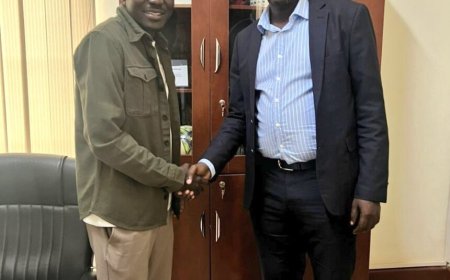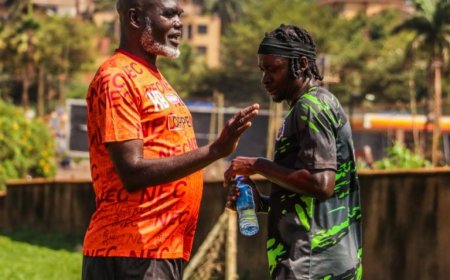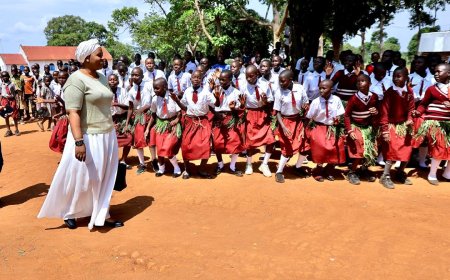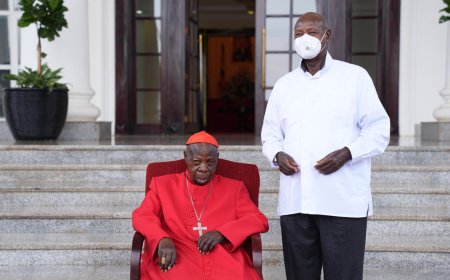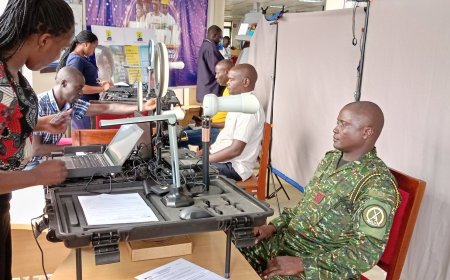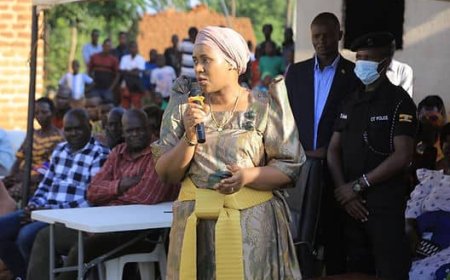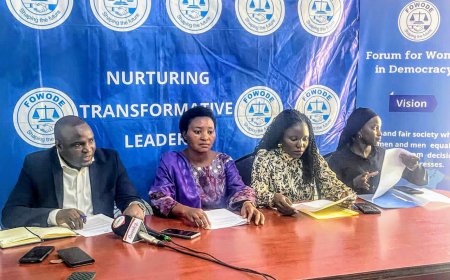Prof. Waswa Balunywa Shares Lessons from the "University of Life: Prison"
He began by observing that while not everyone goes to prison, “we are all potential prisoners.” He noted that in ordinary universities, students leave with knowledge, but there are essential life lessons—discipline, humility, motivation—that institutions of higher learning seldom teach. These, he argued, are often learned involuntarily in the “University of Life,” particularly in prison.
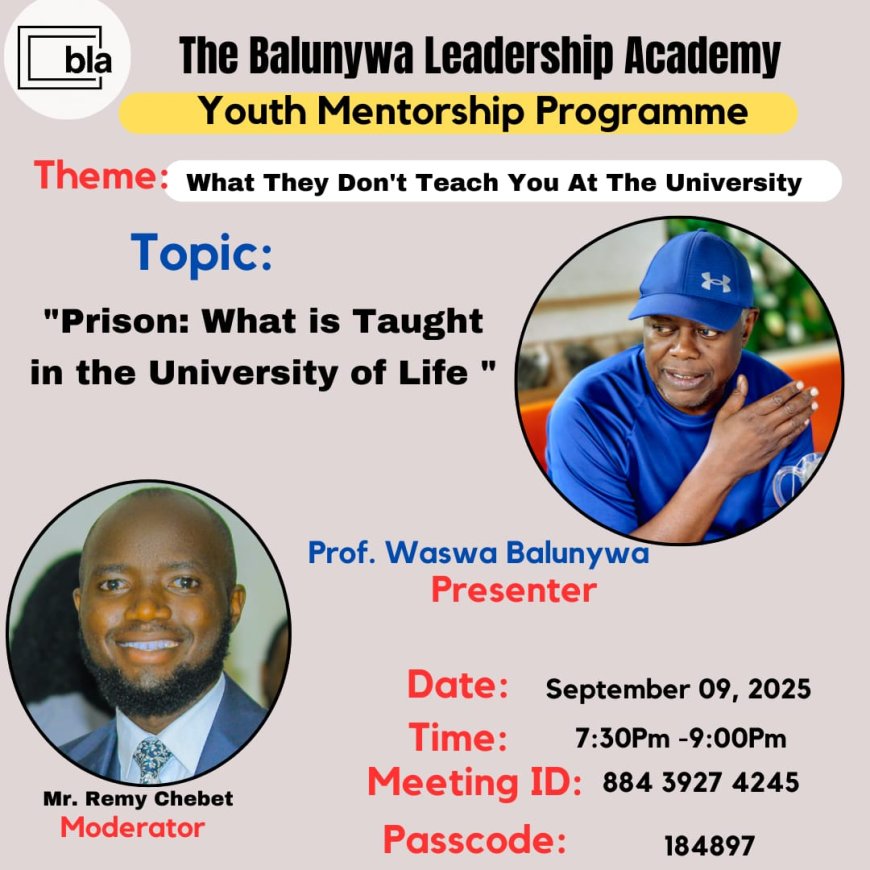
The Balunywa Foundation, through its Leadership Academy Youth Mentorship Programme, on Tuesday, September 9, 2025, hosted a virtual mentorship session with Prof. Waswa Balunywa under the theme: “What They Don’t Teach You at the University.”
Prof. Balunywa, an academic and leadership mentor, tackled a rarely discussed subject, delivering his presentation titled “Prison: What is Taught in the University of Life.”
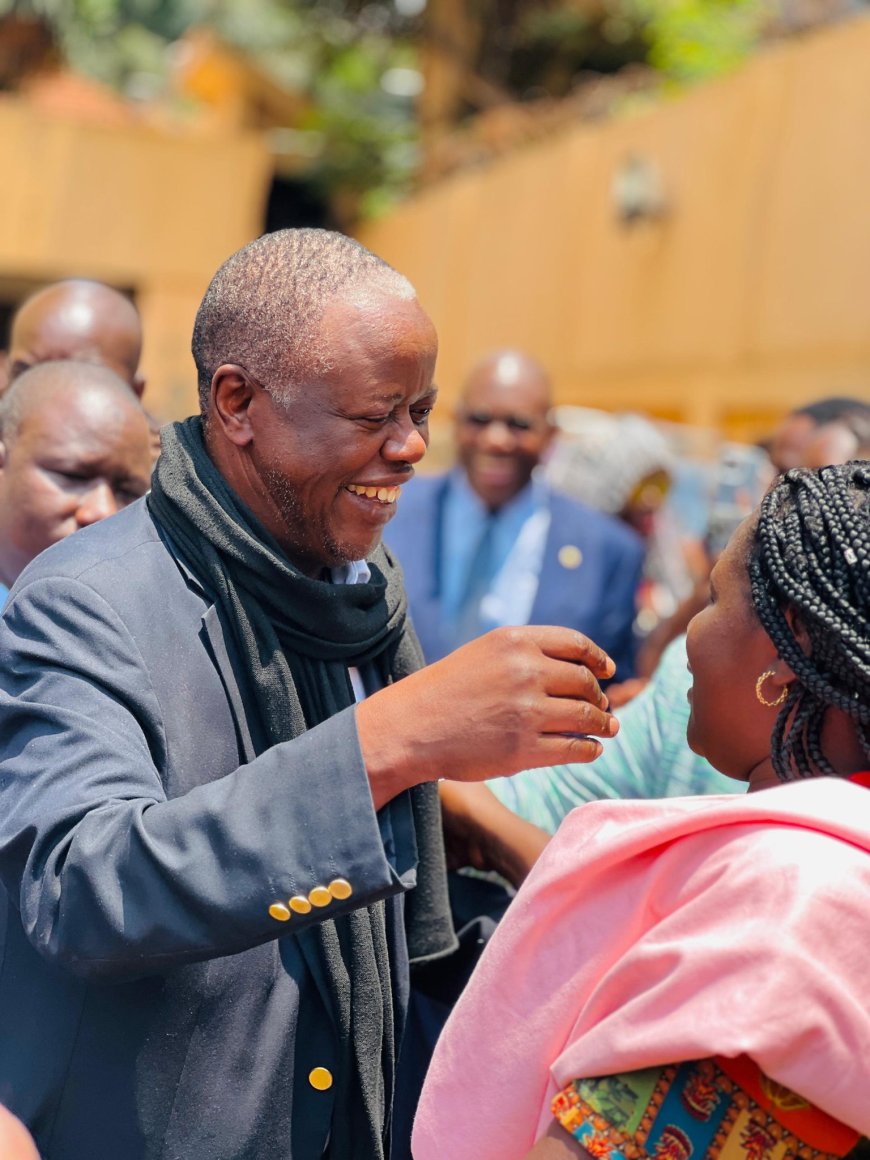
He began by observing that while not everyone goes to prison, “we are all potential prisoners.” He noted that in ordinary universities, students leave with knowledge, but there are essential life lessons—discipline, humility, motivation—that institutions of higher learning seldom teach. These, he argued, are often learned involuntarily in the “University of Life,” particularly in prison.
“Prison is not a good place to go to. I wasn’t welcomed but I was loved in prison,” Prof. Balunywa said, reflecting on his own brief time behind bars. He explained that inmates never welcome new entrants because nobody loves being there, but within the walls, a different kind of acceptance emerges.
Key Lessons from Prison
Prof. Balunywa outlined several lessons he drew from his prison experience:
Obedience – Failure to follow regulations leads to trouble. While obedience is instilled by parents, teachers, and religious leaders, prison enforces it more strictly.
Loss of Rights and Freedom – Inmates quickly learn that imprisonment strips away fundamental rights.
Restricted Movement – Unless assigned external work duties, movement within the prison is extremely limited.
Tight Security – Every action is closely monitored, reinforcing discipline through restriction.
Humility – “If they tell you to be handcuffed, do it voluntarily without being coerced,” he emphasized.
Self-Reflection – Prison time forces one to ask, “Why am I here?” Such reflection opens doors to self-discovery.
Resilience – “I was there for two days but it felt like a month. Imagine one being there for 50 years,” he reflected.
Prison Break of Behavior – He likened personal transformation to a prison break: eliminating unacceptable behaviors that could trap one in society’s version of prison.
Prof. Balunywa also warned of the mental toll prison can have: hallucinations, depression, or even madness from prolonged confinement.
Dignity in Confinement
Though prison often robs inmates of dignity, Prof. Balunywa cited Nelson Mandela as a symbol of resilience and dignity maintained under incarceration. “Mandela never lost his dignity despite being in prison for many years,” he said.
Conditions Behind Bars
Prof. Balunywa commended Uganda’s prison warders and staff for their professionalism but expressed concern about congestion in prison facilities. He revealed that occupancy rates stand at 378%, meaning a space designed for one inmate is shared by nearly four.
Prof. Balunywa concluded by stressing that prison should not be wished upon anyone. Instead, its lessons—obedience, humility, resilience, and self-reflection—should be learned in life before one ever ends up there.
The mentorship session, part of the Balunywa Foundation’s Youth Leadership Programme, gave participants a rare opportunity to reflect on life beyond the classroom, urging them to embrace discipline and character-building as essential foundations for success.














































